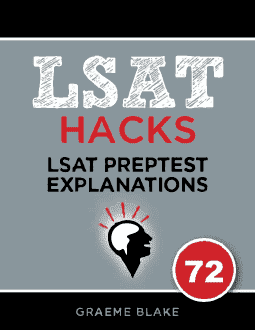QUESTION TEXT: Astrophysicist: Gamma ray bursts (GRBs)-explosions…
QUESTION TYPE: Strengthen
CONCLUSION: “Short” and “long” descriptive labels for gamma ray bursts are no longer useful.
REASONING: “Short” and “long” describe gamma ray bursts. Short and long refer to how long the bursts last. Recently, we found a burst that lasted a long time but otherwise was similar to a short burst.
ANALYSIS: This is a confusing situation. I had to read it a few times to figure out what it means. I’m going to make up a description of long and short gamma bursts to illustrate. Typical features:
Long: Lasts a long time, smells smoky, looks purple, sounds loud
Short: Last a short time, smells like oranges, looks green, sounds like a whispered voice
Obviously, these are nonsense descriptions, but let’s go with it. The question is whether these long and short labels are useful, or whether we should replace them with something like “type A” and “type B”.
Recent burst: Lasts a long time, smells like oranges, looks green, sounds like a whispered voice
How do we classify this burst? It is “most similar” to a short burst. But the length matches a long burst. We actually don’t know the proper way to classify bursts. But we are supposed to strengthen the argument that “short” and “long” are not good labels. We can do this by showing that it’s the other qualities that matter for classification, not length.
If classification is mostly based on length, then calling the bursts “long” and “short” also makes sense. But if classification is based on the other factors, then we should call the recent burst “short”. But that’s misleading, because the burst lasted a long time. “Type B” would be clearer.
Note: the question stem uses the words “most strongly supported”. But if you look at what the full stem means, this is clearly a “strengthen” question.
___________
- This weakens the argument. The point of mentioning the unusual gamma burst was to show that the classification system doesn’t work for all gamma bursts. But if only one gamma burst doesn’t fit into the system, then maybe we can safely keep the current system. One exception isn’t a big deal.
- This may weaken the argument. The whole point of the unusual gamma burst is that duration is not a good way to categorize. The unusual burst was long, but otherwise resembled a short burst.
If length is good enough on its own, then maybe we don’t have to worry that the recent burst otherwise resembled a short burst. - CORRECT. This shows that we should probably classify the recent gamma burst as “short”, even though it lasted a long time. Therefore, the label “short” is misleading, and we should replace it with something like “type B”.
- This is totally irrelevant. We don’t know what cosmic factors create gamma bursts, so we don’t know if the astrophysicist thinks gamma bursts should be categorized by cosmic event. The author never said that cosmic events were relevant.
- This talks about whether we can replace descriptive labels. But the argument wasn’t about that. Instead, the argument was about whether descriptive labels were still useful.
Something might be deeply flawed, but impossible to replace.


Any further clarification on why its a strengthen and not a MSS question. Still confused.
MSS questions are facts from which you can draw an inference from. If this question was an MSS, the question would ask: “Which one of the following is most strongly supported by the information above?”, which goes in the opposite direction as the stem here. This question is asking you to choose an answer choice (an assumption) to support the information above (conclusion); an MSS would have a stimulus (facts) that supports one of the answer choices (inference). It’s a difference in the direction that the support flows.